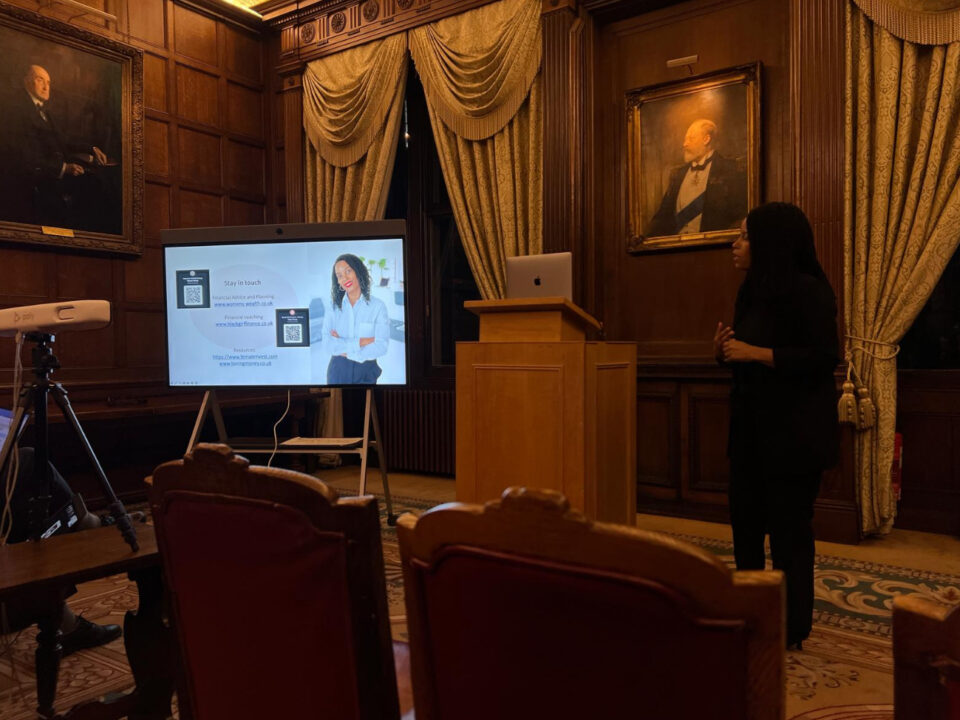
Let’s talk about Diversity in Law
January 3, 2024
R (on the application of PACCAR Inc and others) (Appellants) v Competition Appeal Tribunal and others (Respondents) [2023] UKSC 28
January 6, 2024Article by Isha Amir.
Reading time: four minutes
Law students often overlook the power of inclusive networking as they embark on their career journeys.
Beyond personal growth, embracing inclusivity in networking holds far-reaching implications for the legal profession and society. This article explores the significance of cultivating diverse networks in the legal field and provides valuable tips for early-year law students to navigate networking intricacies.
What is inclusive networking?
Traditional networking in the legal profession has long been exclusive, favouring established connections and perpetuating a lack of diversity. As the legal landscape evolves, the need for a more inclusive approach becomes evident.
Consider Maria, a talented law student, who faces challenges connecting with established professionals due to the lack of diversity in her networking experiences. Her story reflects the broader issue within the legal community, emphasizing the need for a paradigm shift towards inclusive networking. Early-year law students, like Maria, commonly struggle in traditional networking environments, where the legal profession’s deep-rooted tradition often favours established connections, unintentionally excluding individuals from diverse backgrounds. In addition, the diversity and issue in networking for law students is rooted in biases limiting opportunities for underrepresented groups. Law students from marginalised backgrounds often struggle to break into tightly knit circles dominating the legal networking scene which can hinder their career growth.
The legal profession’s deep-rooted traditions and hierarchical structures create a barrier for students diverging from the conventional mold. The lack of diversity in legal networks not only hampers individual career growth but impedes the overall progress of the field. Redefining networking norms within the legal community is crucial.
The repercussions of limited diversity in legal networks extend beyond law firms and barristers chambers. A legal system lacking diverse perspectives is inherently flawed, failing to address the multifaceted issues in a diverse society. The legal profession, shaping societal norms and policies, must ensure networks represent the rich tapestry of backgrounds for a just and accessible legal system. Inclusive networking is key to keeping the legal system relevant to all.
Why Firms and Barristers’ Chambers Should Care
Diversity is not just a buzzword; it makes good business sense for law firms and barristers’ chambers. As the clientele of legal entities becomes increasingly diverse, it is essential that the professionals representing them mirror this diversity. Inclusive networking broadens the pool of talent, bringing in varied perspectives that can contribute to innovative problem-solving and enhanced client relationships.
A diverse legal team is better equipped to navigate the complexities of a globalised world, making it an invaluable asset for any forward-thinking firm or barristers chamber. For example, according to the Solicitors Regulation Authority, firms increasingly see diversity as a business asset. Using diversity data helps identify barriers, win business, and enhance their reputation. In the legal sector, diversity is crucial for fair justice, a diverse workforce reduced risks and provides a better experience for the public. An inclusive culture not only fosters diversity but also boosts productivity. Firms that overlook its value risk missing out on talented individuals.
Tips for Inclusive Networking
- Attend diverse events
Actively seek out events that cater to a variety of backgrounds and experiences. Attend conferences, seminars, and networking functions that focus on inclusivity in the legal profession For example, University Law fairs, The Legal Cheek Virtual Law Fairs, TargetJobs Law Fair and Bar Council Pupillage Fair. Other networking events you can find through your university, get involved with the law society. Here is some websites that can help:
- https://www.allaboutlaw.co.uk/events
- https://www.chambersstudent.co.uk/law-schools/events
- https://www.legalcheek.com/events/
- Build genuine connections
Networking is not just about collecting business cards; it’s about building meaningful relationships. Take the time to understand others’ experiences and perspectives and share your own story authentically.
- Utilise online platforms
Leverage social media and professional networking platforms to connect with a diverse range of legal professionals. Online platforms provide opportunities to engage with individuals who may not be accessible through traditional networking events. This includes using LinkedIn as a source of networking, reach out to legal professionals and build a strong network online. Some examples of networking opportunities:
And of course, you can also check out what networking events your university has set up. If none, then become part of the law society at your university and host networking events, it shows greats skills and will look great on your CV.
- Mentorship Programmes: Participate in mentorship programmes that pair early-year law students with experienced professionals from diverse backgrounds. Mentorship fosters a supportive environment for learning and growth. Here is some useful resources:
- Be an Ally: Advocate for inclusivity within your academic and professional circles. Be an ally to those facing barriers, and actively work towards dismantling systemic biases in the legal community.
Finally
The legal profession stands at a crossroads where inclusivity is not just an ethical choice but a strategic imperative. By fostering diverse networks, law students not only enhance their personal growth but also contribute to a legal community. As a call to action, start today by implementing the provided tips, creating a ripple effect that transforms traditional networks into inclusive, dynamic ecosystems. The future of the legal profession depends on it.





